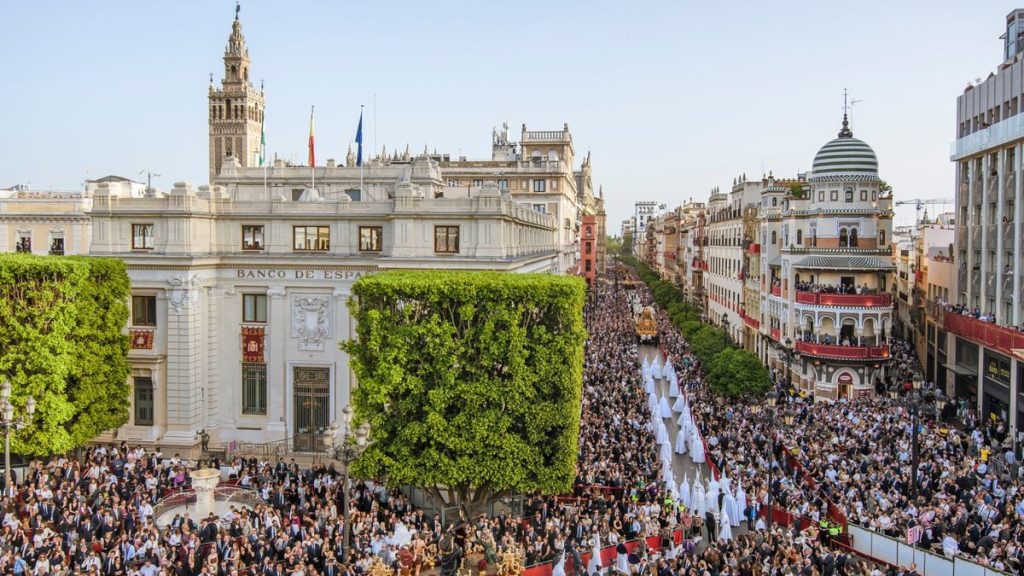The celebration of the passion of Christ, his death, and resurrection these days raises debates about the religiosity and Catholicism of Spanish society. Surveys show a decline in beliefs and church attendance, while the streets are filled with penitents and brotherhood members during this time. Professor César Rina Simón and priest and writer Pablo D’Ors reflect on the current connections of Spanish society with the Catholic Church. Spain has lost much of the influence it had during the Franco-era National Catholicism, now surviving as a facilitator of rituals, a stage for nostalgia, and a network of declining parish communities. Despite this, there is a growing interest in spiritual and transcendent matters, with religious symbolism present in various aspects of society.
Popular festivities during Holy Week exemplify the mix of Catholic forms and secular meanings in Spain, with empty churches and streets filled with penitents, costaleros, mantillas, and spectators. These traditions have medieval and baroque origins but are now tied to modern phenomena such as tourism, the sacralization of politics, regional identities, and the urban space transformed into a stage for a multi-faceted popular opera. The official narrative may be nationalistic and Catholic, but the meanings transcend religious phenomena and hierarchical spheres. Despite attempts by the Church to purify and redirect these practices, they have expanded in recent decades as a form of popular reimagining of local identities and traditions. This reflects the commercialization of authentic and ancestral experiences.
The surge in Holy Week celebrations reflects uncertainties of the present era, with an emphasis on seeking collective redemption in the past and a taste for historicist dramatization. These festivities allow for the representation of community continuity over time and participation in symbolic rituals of resistance to globalization and urbanization. This trend towards a celebration of identity and belonging rather than beliefs is a response to contemporary individualism and utilitarian demands. The vitality of these festivities lies in their ability to provide a sense of community involvement and association with transcendent projects.
Pablo D’Ors argues that Spain has never been truly Catholic, as faith belongs to individuals rather than countries or collectives. With a decline in Catholic socio-cultural influence, the religious practices becoming more personal and authentic is seen as a positive development signaling a transformation towards a genuine spirituality detached from mere social conventions. As a believer in Jesus Christ, D’Ors asserts that his personal experience of faith through Jesus’ message transcends mere belief and delves into the spiritual realm, connecting him to the Catholic Church. He anticipates a turn towards a more inclusive and universal Catholicism in Spain, rooted in the symbolism of love and a deeper understanding of the teachings of Jesus.
D’Ors’ perspective offers an intimate exploration of faith and spirituality, emphasizing the personal connection to Catholicism while acknowledging the transformations in beliefs and practices over time. As Western societies, including Spain, navigate through materialism towards a rediscovery of spiritual values, embracing the universal truths inherent in Christianity may lead to a truly Catholic expression of faith. The ongoing search for a better world guided by the principles of love and interconnectedness reflects a deeper understanding of religious traditions and their potential to shape society positively. Through reflections on personal faith journeys and societal transformations, the dialogue surrounding religiosity and Catholicism in Spain reveals a complex interplay between tradition and modernity, belief and belonging, and individual experience and collective identity.


